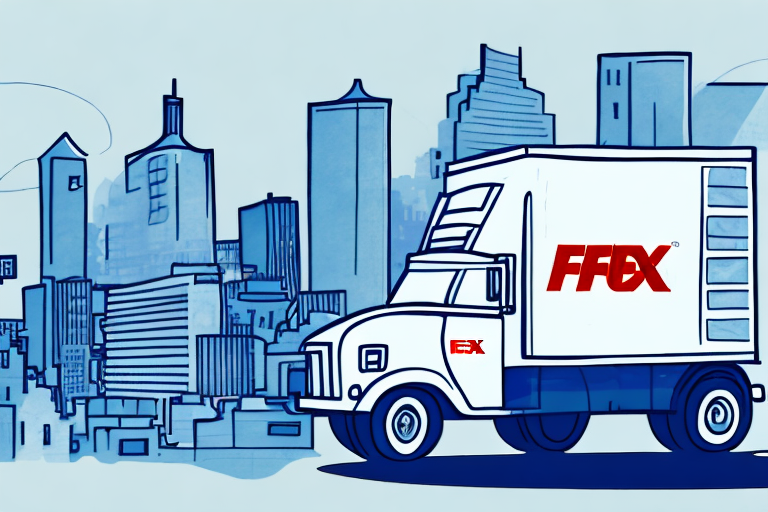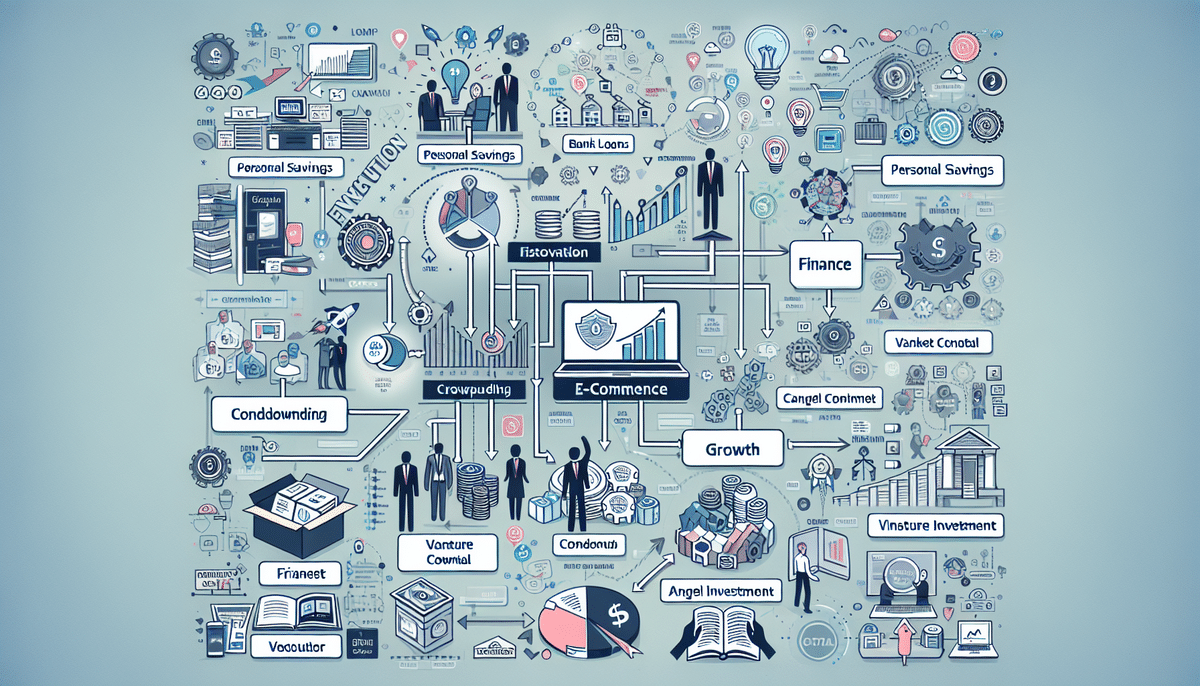The State of FedEx's Financial Health: A Comprehensive Analysis
FedEx’s financial performance has shown resilience and adaptability in recent years. In fiscal year 2022, the company reported revenues of approximately $90 billion, reflecting growth driven by increased e-commerce demand. Despite challenges such as inflation and supply chain disruptions, FedEx managed to achieve a net profit of $4.8 billion, a significant improvement compared to previous years. According to [FedEx's 2022 Annual Report](https://investors.fedex.com/financial-information/annual-reports/default.aspx), the company has strengthened its revenue streams through strategic investments and operational efficiencies.
One of the major factors impacting FedEx's financial health is the ongoing COVID-19 pandemic. While the pandemic initially caused disruptions in global supply chains, it also accelerated the shift towards e-commerce, resulting in sustained demand for shipping services. Additionally, the increased focus on remote work and automation has led FedEx to invest in technologies that enhance operational efficiency and reduce costs.
To further bolster its financial performance, FedEx has implemented several initiatives, including workforce optimization and restructuring of its operations. The company has also prioritized sustainability by investing in electric vehicles and sustainable packaging solutions, positioning itself as a leader in eco-friendly logistics.
Factors Potentially Impacting FedEx's Business Operations
Global Trade Dynamics
The ongoing trade tensions between major economies, such as the United States and China, pose significant risks to FedEx's global operations. Increased tariffs and trade barriers can disrupt international shipping routes, leading to higher costs and reduced efficiency. According to [The World Trade Organization](https://www.wto.org/), shifts in trade policies can have profound impacts on global logistics networks.
Changing Consumer Behavior
With the rise of e-commerce, consumer expectations have evolved, demanding faster and more reliable delivery services. This shift requires FedEx to continually invest in infrastructure and technology to meet these demands. The [eMarketer](https://www.emarketer.com/) reports that global e-commerce sales are projected to exceed $6.5 trillion by 2023, highlighting the critical need for robust logistics solutions.
Technological Advancements
Advancements in technology, such as automation and artificial intelligence, offer both opportunities and challenges for FedEx. Embracing these technologies can lead to increased efficiency and cost savings, but requires substantial investment and adaptation. The integration of autonomous delivery vehicles and drone technology is a key focus area for FedEx, as highlighted in their [innovation initiatives](https://www.fedex.com/en-us/company/innovation.html).
The Impact of COVID-19 on FedEx's Business Model
Supply Chain Disruptions
The COVID-19 pandemic caused unprecedented disruptions in global supply chains, affecting FedEx's operations. However, the increased reliance on e-commerce during the pandemic led to a surge in demand for delivery services, partially offsetting the negative impacts. FedEx responded by enhancing its capacity for critical shipments, including medical supplies and personal protective equipment.
Safety Protocols and Employee Well-being
To ensure the safety of its employees and customers, FedEx implemented comprehensive safety protocols, including mandatory mask-wearing, contactless deliveries, and enhanced cleaning procedures. These measures not only mitigated health risks but also strengthened customer trust and loyalty.
Adaptation to Remote Work
The shift to remote work necessitated by the pandemic accelerated FedEx's investment in digital tools and remote management systems. These technologies have improved operational flexibility and efficiency, enabling FedEx to maintain high service standards despite the challenges posed by the pandemic.
How eCommerce Has Affected FedEx's Business Model in Recent Years
Increased Demand for Logistics Services
The exponential growth of e-commerce has significantly boosted demand for logistics and delivery services. FedEx has capitalized on this trend by expanding its logistics network and introducing services tailored to e-commerce businesses, such as same-day and next-day delivery options.
Investment in Technology
To enhance efficiency and meet the demands of e-commerce, FedEx has invested in advanced technologies like automation, robotics, and artificial intelligence. These investments have streamlined operations, reduced delivery times, and lowered operational costs.
Expansion of Global Network
The rise of international e-commerce has prompted FedEx to expand its global network. By establishing new distribution centers and optimizing international shipping routes, FedEx ensures timely and efficient delivery of cross-border shipments.
Challenges from Market Competition
While e-commerce growth presents opportunities, it also intensifies competition. Companies like Amazon and Alibaba are developing their own logistics networks, challenging FedEx's market share. To stay competitive, FedEx continuously innovates and diversifies its service offerings.
The Role of Amazon in the Future of FedEx's Operations
Direct Competition in Logistics
Amazon's significant investments in its logistics infrastructure, including the development of Amazon Logistics, pose a direct challenge to FedEx. Amazon's ability to control its supply chain from end to end reduces its reliance on third-party providers like FedEx.
Partnerships and Collaborations
Despite competition, Amazon still relies on FedEx for specific delivery needs. FedEx has partnered with Amazon to provide critical shipping services, ensuring a steady revenue stream even as Amazon builds its logistics capabilities.
Innovation in Delivery Services
Both Amazon and FedEx are pushing the boundaries of delivery innovation. While Amazon focuses on expanding its drone delivery and same-day services, FedEx is enhancing its autonomous delivery technologies and investing in sustainable delivery solutions to maintain a competitive edge.
The Competition: How Other Shipping Companies are Affecting FedEx's Market Share
Primary Competitors
FedEx competes with major logistics companies such as UPS, DHL, and the United States Postal Service (USPS). Each of these competitors offers a range of services that overlap with FedEx's offerings, intensifying the competition for market share.
Strategies to Maintain Competitiveness
To stay ahead, FedEx employs several strategies, including:
- Expanding its global footprint to reach emerging markets.
- Investing in advanced technologies to improve operational efficiency.
- Offering customized logistics solutions to meet diverse customer needs.
- Enhancing customer service through improved tracking systems and delivery options.
Responding to Market Trends
FedEx closely monitors market trends and adapts its strategies accordingly. For instance, the increasing demand for sustainable practices has led FedEx to invest in electric delivery vehicles and eco-friendly packaging, differentiating itself from competitors.
The Future of Retail and Its Implications for FedEx's Business Model
Shift to Online Shopping
The continued shift to online shopping is reshaping the retail landscape. FedEx must adapt by enhancing its e-commerce logistics capabilities, ensuring efficient and reliable delivery services to meet consumer expectations.
Demand for Faster Delivery
Consumers are increasingly demanding faster delivery times, including same-day and next-day options. To meet these expectations, FedEx is investing in technologies and infrastructure that enable rapid and efficient delivery.
Sustainability and Eco-Friendly Practices
There is a growing emphasis on sustainability within the retail industry. FedEx is responding by adopting eco-friendly practices, such as using electric vehicles, optimizing delivery routes to reduce carbon emissions, and implementing sustainable packaging solutions.
Integration of Omnichannel Retailing
FedEx is supporting the integration of omnichannel retailing, where consumers expect seamless shopping experiences across various platforms. By providing flexible and reliable logistics solutions, FedEx helps retailers meet these multifaceted consumer demands.
How Changes in Trade Agreements Could Affect FedEx's Global Operations
Impact of Tariffs and Trade Barriers
Changes in trade agreements, such as increased tariffs or new trade barriers, can significantly impact FedEx's global operations. These changes may lead to higher shipping costs, longer delivery times, and reduced efficiency in international logistics.
Regulatory Compliance
FedEx must navigate a complex web of international regulations and customs procedures. Changes in trade agreements often come with new regulatory requirements, necessitating continuous adaptation to maintain compliance and ensure smooth operations.
Strategic Partnerships
To mitigate the risks associated with changing trade agreements, FedEx forms strategic partnerships with local logistics providers. These collaborations help FedEx navigate regional complexities and maintain service reliability in diverse markets.
Example: US-China Trade Relations
The ongoing trade tensions between the US and China have forced FedEx to adjust its logistics strategies. By diversifying its shipping routes and investing in alternative markets, FedEx aims to reduce dependency on any single trade pathway, ensuring resilience against geopolitical uncertainties.
Strategies for Mitigating Risk and Ensuring Long-Term Success for FedEx
Investment in Technology and Innovation
FedEx continues to invest in cutting-edge technologies such as automation, artificial intelligence, and autonomous vehicles. These investments enhance operational efficiency, reduce costs, and improve delivery speed, positioning FedEx for sustained growth.
Expansion into New Markets
By expanding its presence in emerging markets, FedEx diversifies its revenue streams and reduces reliance on any single geographic region. This strategic expansion helps mitigate risks associated with regional economic fluctuations and trade disruptions.
Sustainability Initiatives
FedEx is committed to sustainability, aiming to achieve carbon-neutral operations by 2040. Initiatives include the adoption of electric delivery vehicles, investment in alternative energy sources, and the implementation of sustainable packaging solutions.
Enhancing Customer Experience
Providing exceptional customer service is paramount to FedEx's long-term success. The company focuses on improving tracking systems, offering flexible delivery options, and ensuring reliable and timely deliveries to enhance overall customer satisfaction.
Strengthening Partnerships and Collaborations
FedEx fosters strong partnerships with retailers, e-commerce platforms, and technology providers. These collaborations enable FedEx to offer integrated logistics solutions, tailored to the specific needs of its diverse customer base.
Conclusion
While there are potential risks to FedEx's business operations, the company is proactively addressing these challenges through strategic investments, technological innovation, and a commitment to sustainability. By adapting to changing market dynamics and evolving consumer demands, FedEx remains a formidable player in the global shipping and logistics industry. Continued focus on operational efficiency, customer satisfaction, and market expansion will position FedEx for long-term success in an increasingly competitive landscape.




















